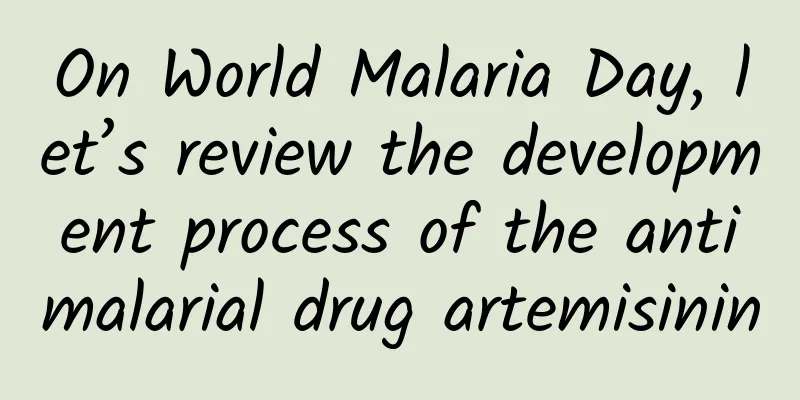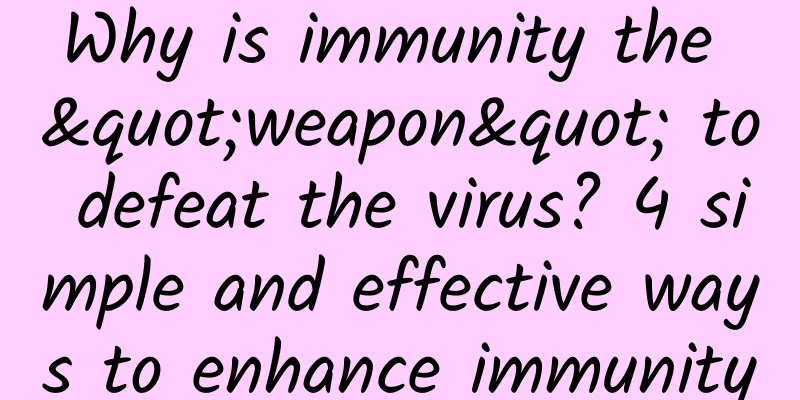On World Malaria Day, let’s review the development process of the antimalarial drug artemisinin

|
April 25th of each year is World Malaria Day, which aims to raise public awareness and understanding of malaria, promote international cooperation, and jointly achieve the goal of eliminating malaria. When it comes to malaria, we have to talk about the antimalarial drug artemisinin. Do you know its development process? Read today's science story to find out! “The deer are calling, eating apples in the wild… The deer are calling, eating wormwood in the wild…” Kaikai was sitting on the sofa, reading a book in his hand. "Kaikai, what are you mumbling about?" The building blocks collapsed again, and Xinxin looked up at Kaikai unhappily. "I'm reading The Book of Songs·Xiaoya·Luming." Kaikai said. "There is a great scientist in our country, and her name comes from this!" said Mom with a smile. "Who is it?" Xinxin asked. “The mother of artemisinin—Tu Youyou!” Mom revealed the answer. "Oh, she's the scientist who discovered a new drug to treat malaria!" Kaikai said. "I heard Tu Youyou even won the Nobel Prize." "That's right, the Nobel Prize in Physiology or Medicine. This is the first time that a Chinese scientist has won the Nobel Prize in the field of natural sciences." Mom nodded. "How great is this scientist to win the Nobel Prize?" Xinxin asked curiously. "There is a contagious disease spread through mosquito bites, called malaria. It is also a very ancient and deadly infectious disease. From ancient times to the present, humans have never stopped studying ways to prevent and treat malaria. The bark of a tree that grows in America can treat this disease. This tree is called 'quinine', and a white alkaloid, cinchona, can be extracted from the quinine bark. Through continuous research, people eventually artificially synthesized cinchona, which became the nemesis of malaria. However, in the 1960s, malarial parasites developed resistance to cinchona, and the drugs were no longer effective. Therefore, there is an urgent need to develop a new generation of specific drugs for the treatment of malaria." said my mother. "Oh, so Tu Youyou invented a new special medicine, so she won the Nobel Prize?" Xinxin asked again. "Yes. In 1967, a scientific research project codenamed '523' was launched, with the goal of finding new drugs to fight malaria. However, two years later, the project had not made any progress. At this time, someone thought about whether they could seek breakthroughs in traditional Chinese medicine. So Tu Youyou, an assistant researcher who was only 39 years old at the time, joined the scientific research project." Mom introduced, "Tu Youyou is a scholar who is compatible with both Chinese and Western medicine. Malaria has existed since ancient times, so she consulted many ancient Chinese medicine books and local medicine records, and also visited old Chinese medicine doctors to collect many prescriptions for anti-malarial. In the end, Tu Youyou focused her attention on Artemisia annua, also known as Artemisia annua, in traditional Chinese medicine." "So artemisinin was extracted?" Kaikai asked. "No. Chinese medicines are all about 'decoction and oral administration', so Tu Youyou used the traditional method of chopping, heating and filtering to extract effective drugs from the beginning. However, the mouse experiments always ended in failure. She reread the ancient books again, and there was a sentence in it, 'Take a handful of Artemisia annua, soak it in two liters of water, squeeze out the juice, and drink it all.' It did not mention decoction here, but squeezed out the juice of Artemisia annua by hand at room temperature." Mom continued, "Tu Youyou suddenly realized, and finally on October 4, 1971, she successfully extracted an effective antimalarial drug - artemisinin from Artemisia annua by using ether with a very low boiling point. After that, in 1973, Tu Youyou developed an artemisinin derivative 'dihydroartemisinin', which has a clinical efficacy 10 times higher than artemisinin." "Wow, that's amazing. The development of artemisinin will definitely save many lives. Tu Youyou is truly an amazing scientist who has benefited mankind." Kaikai said with emotion. "Yes, Tu Youyou is not an academician, nor has she studied abroad, and she doesn't even have a doctoral title, but she is down-to-earth and serious, and never gives up in the face of failure. Through her lifelong efforts, she eventually won the Nobel Prize and benefited all mankind." Mom nodded. "That's amazing. I want to learn from her and never give up." Xinxin rolled up her sleeves and continued to build blocks. 【Knowledge Card】The Mother of Artemisinin——Tu Youyou Tu Youyou graduated from the Department of Pharmacy of Beijing Medical College in 1955. After graduation, she worked at the Institute of Traditional Chinese Medicine of the Ministry of Health (now the China Academy of Chinese Medical Sciences). Tu Youyou is a scholar who is compatible with both Chinese and Western medicine. She was only 39 years old when she participated in the "523" scientific research project. With her diligence and unremitting efforts, on October 4, 1971, she successfully extracted the effective antimalarial drug artemisinin from Artemisia annua through ether with a very low boiling point. After that, in 1973, she developed the artemisinin derivative 'dihydroartemisinin' again, and its clinical efficacy was 10 times higher than that of artemisinin. It is called the "Mother of Artemisinin." In 2015, Tu Youyou won the Nobel Prize in Physiology or Medicine, which was the first time a Chinese scientist won the Nobel Prize in the field of natural sciences. |
>>: It’s the season of blue tears again! But…isn’t this really ocean pollution?
Recommend
With all the dividends lost, how to use competitors to increase user growth?
Now many products are facing the dilemma of sever...
Do these 5 things well and the click-through rate of information flow advertising materials will increase by 90%
What does craftsmanship require? Humility, persev...
What should we expect from WMC?
[[128358]] The GSM Association is one of the thre...
UI Development Trends in 2020: Declarative UI to Rule Them All
In 2020, it seems that the main players in UI dev...
Increasing localized production: Keywords to interpret BMW's development trend in the next 100 years
This year, the BMW Group celebrated its 100th ann...
User promotion: 6 common forms of bringing in new users
Today's article would like to explain to you ...
I saw him build a tall building, and I saw it collapse. Are you familiar with these 10 high-diving cars?
How fierce is the competition in China's auto...
Manganese ore is not "fierce", but a little "cute"
Among all kinds of minerals, those named in the f...
Dismantling the operation and promotion strategies of 360, Xiaomi, WeChat and Oasis
What I will share today are the product operation...
Breaking News | Tik Tok short video marketing secrets: vertical screen advertising 1+1"!
Quick Facts 1. Summary of mobile phone vertical s...
Douyin video copywriting operation skills tutorial: registration - account maintenance - posting works - how to increase fans (10 video lessons)
Douyin video copywriting operation skills tutoria...
How did dinosaurs grow bird wings? A new species dating back 150 million years was discovered in Fujian
Produced by: Science Popularization China Author:...
Knowing more drainage channels is not as good as understanding these 3 drainage principles!
User growth is almost the ultimate proposition of...
What are the functions of the Lanzhou community property management mini program? How much does it cost to develop a property management app?
In order to improve the management efficiency of p...
Soul product operation analysis report
In today's society where the Internet is wide...









